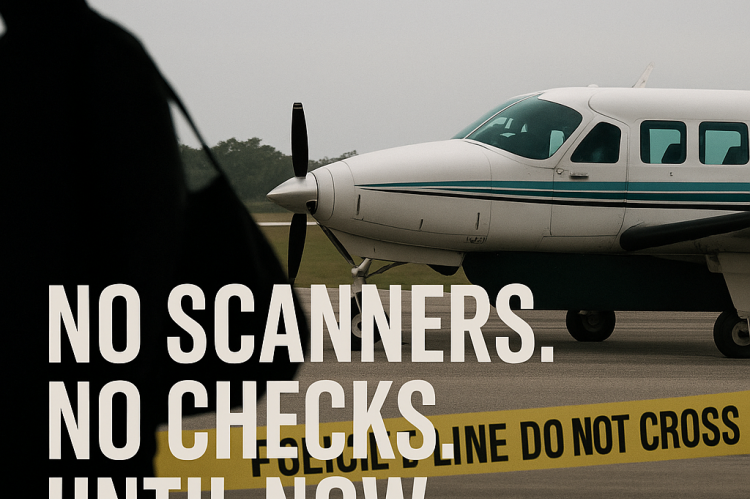“Too Little, Too Late”: Government Reacts with Body Searches After Historic Hijacking Exposes Aviation Security Collapse
By: Omar Silva
National Perspective Belize – Digital 2025
Belize City: Thursday 1st May 2025
Belize’s first-ever aircraft hijacking didn’t just shake the nation’s sense of security—it tore the veil off decades of systemic neglect in domestic aviation safety. After more than two weeks of silence, the Government of Belize has finally broken its hush, launching a blitz of reactive measures including body searches at small aerodromes, baggage screening, and police presence. But for many Belizeans, this move smells more like political damage control than genuine reform.
On April 17, a Tropic Air flight was violently overtaken in midair by Akinyela Taylor, a mentally unstable man armed with a weapon. The pilot, a crew member, and a passenger were injured before the situation was brought under control. It was an unthinkable event in a country that has long advertised itself as a tranquil destination—yet authorities stayed silent for 13 days.
It wasn’t until April 30 that the Ministry of Civil Aviation held a press conference to reveal what it now calls a “renewed commitment to aviation safety.” That “renewed commitment,” however, is largely centered around reactionary policies, hastily deployed after the fact.
“We urge calm but vigilance,” said Civil Aviation CEO Narda Garcia. “Let me be clear: these are not temporary measures.”
Yet the glaring question remains: Why were these measures not in place before a hijacking exposed their absence?
A Nation Caught Off Guard
Belize has long held membership in COCESNA, boasts a Ministry of Civil Aviation, and operates under the Belize Airports Authority. These are not minor agencies—they are the bodies entrusted to ensure compliance with international civil aviation standards.
Yet up until the hijacking, there were no passenger screening systems, no baggage checks, and in many cases, no trained security personnel at domestic airstrips—some of which sit mere miles from the nation’s porous borders. This level of complacency is unacceptable.
What’s more alarming is that the government now admits it only began implementing these basic protocols—bodily searches, police deployment, and bag inspections—after the hijacking occurred. According to Civil Aviation Director Nigel Carter, security sweeps of aerodromes only began “last Friday,” nearly two weeks after the incident.
Damage Control or National Strategy?
The government is spinning its response as proactive leadership. But the optics suggest otherwise. The very idea that a man could board a commercial flight with a weapon and overpower crew members mid-flight signals one thing: Belize’s aviation system was operating on blind trust and institutional neglect.
This was not just a lapse—it was a systemic failure.
In the words of one civil aviation expert who asked not to be named:
“You don’t need a hijacking to know that body searches and bag scans are essential. That’s Aviation Security 101.”
Privatizing the Fallout
In the aftermath, the Belize Airports Authority has turned to private security firms, now racing to train personnel in aviation protocols. The government insists this is part of a long-term solution. But outsourcing such a sensitive matter—after the horse has bolted from the barn—suggests a preference for convenience over competence.
Who will monitor the training? Who is accountable if another breach occurs? And more importantly—why wasn’t a national aviation security plan enforced years ago?
The Real Danger Isn’t the Next Hijacker—It’s Governmental Complacency
Belizeans deserve better than after-the-fact press conferences and hastily arranged security sweeps. We deserve a government that anticipates threats, not one that reacts with over-policed body searches only when the worst has already happened.
This hijacking incident was foreseeable, preventable, and entirely inexcusable.
What the Government of Belize owes the nation now is not just bodily searches and new metal detectors. It owes us an apology for years of dereliction, a transparent explanation of how we got here, and a national security overhaul grounded not in political optics—but in serious, strategic governance.
Until then, Belize remains a country where the first hijacking took flight on the wings of neglect.
- Log in to post comments

